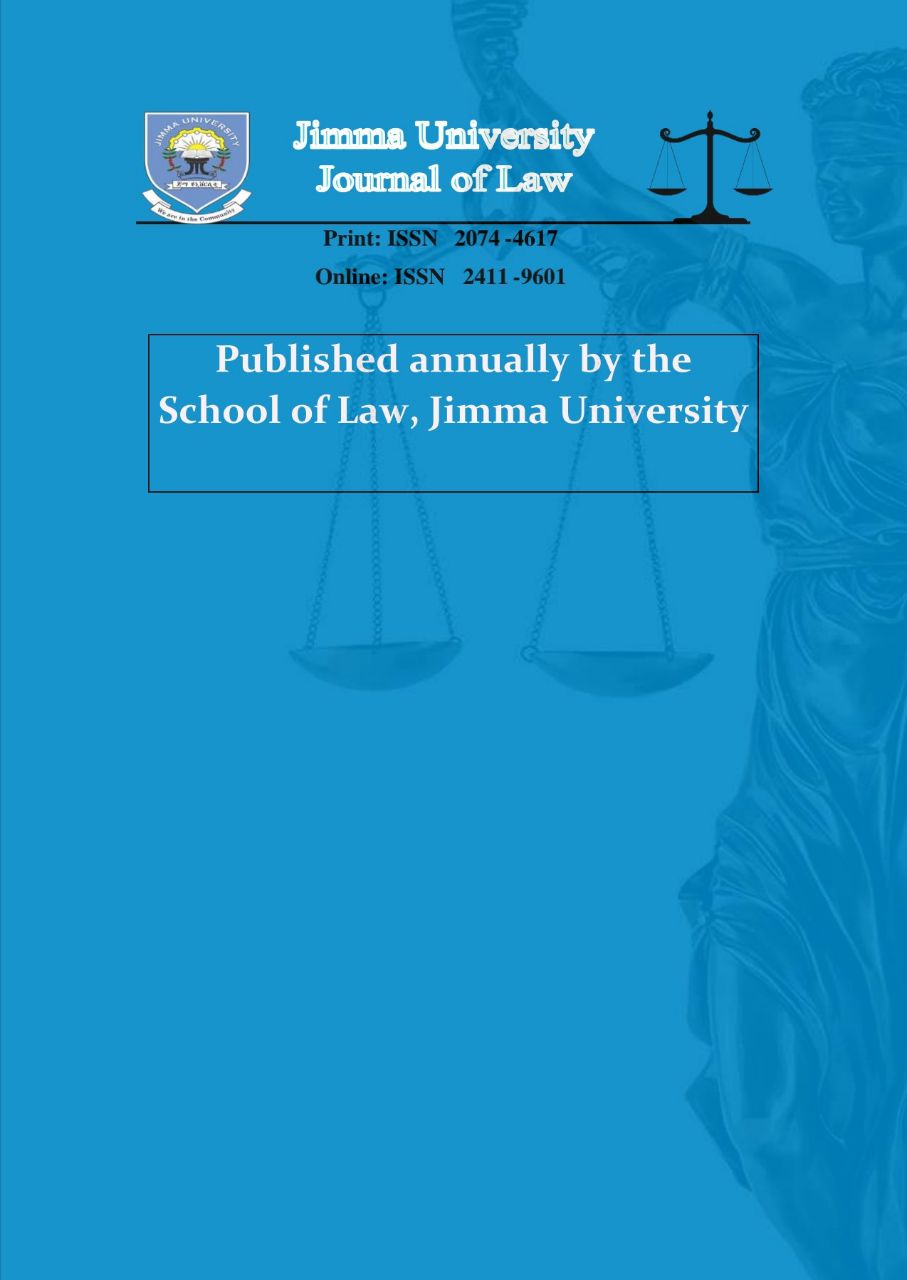Ratification of the Optional Protocol on the Involvement of Children in Armed Conflict (2000) by Ethiopia: What is the Added-Value?
Abstract
In armed conflicts in different parts of the world, the involvement and
recruitment of children seem to be inevitable part of the story. In order to stop
involvement of children in armed conflict, the UN has come up with Optional
Protocol on the Involvement of Children in Armed Conflict in 2000. The Federal
Democratic Republic of Ethiopia (FDRE, hereinafter) has ratified the Optional
Protocol.' This writer sees the important values the Optional Protocol has added
to the already existing human (child) rights system as the ratification of the
Optional Protocol by the FDRE has enabled the country to import these added
values to the existing domestic human rights system per Art.9(4) of its
Constitution. The government failed to fix 18 years under the new Defence
Forces law and hence to work towards establishing 18 as minimum requirement
age under the law. Thus the ratification imports a law that cures this defect. The
writer argues that the persisting challenges are the absence of proper birth
registration and absent or defective procedures for age verification. The
researcher further argues that the Ethiopian recruitment procedure is not reliable.
He argues also that incorporation of substantive provisions as to cross-border
recruitment, training and use of child soldiers, and provisions relating to specific
problems to girl child soldiers or indirect participation should be soldiered on.




